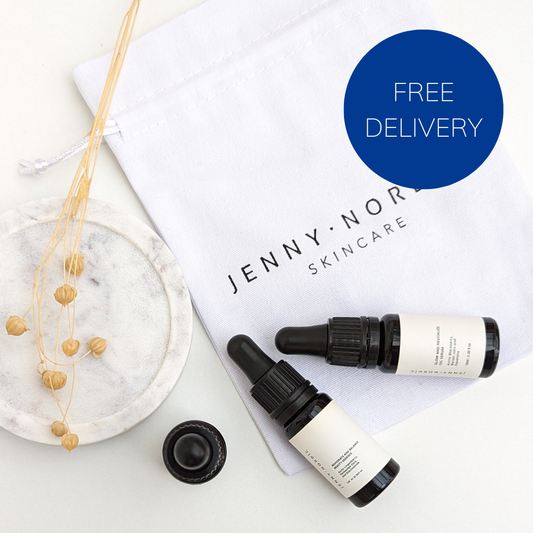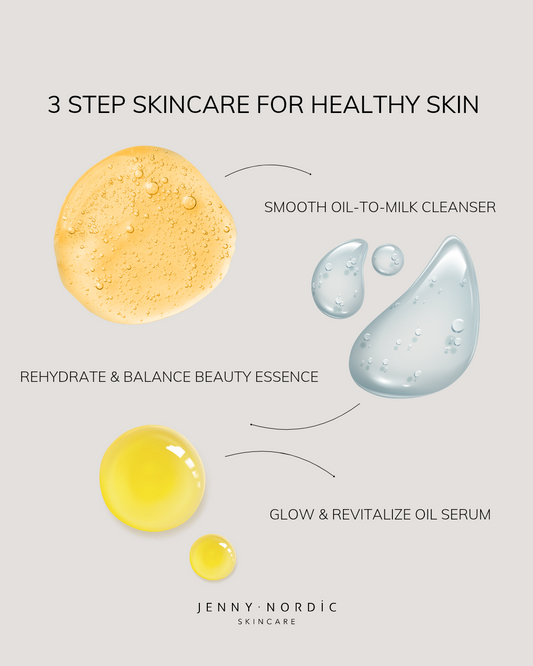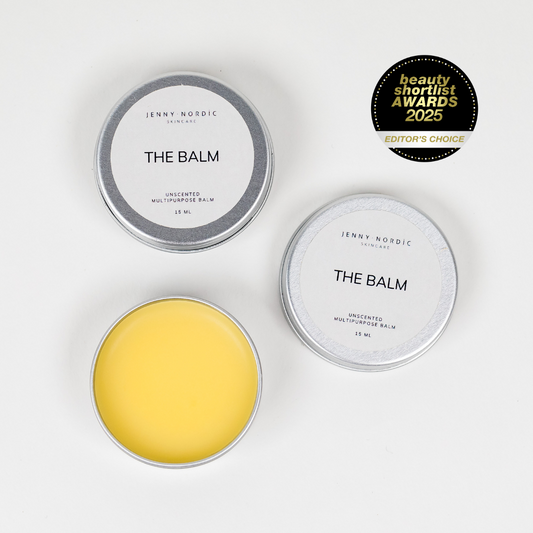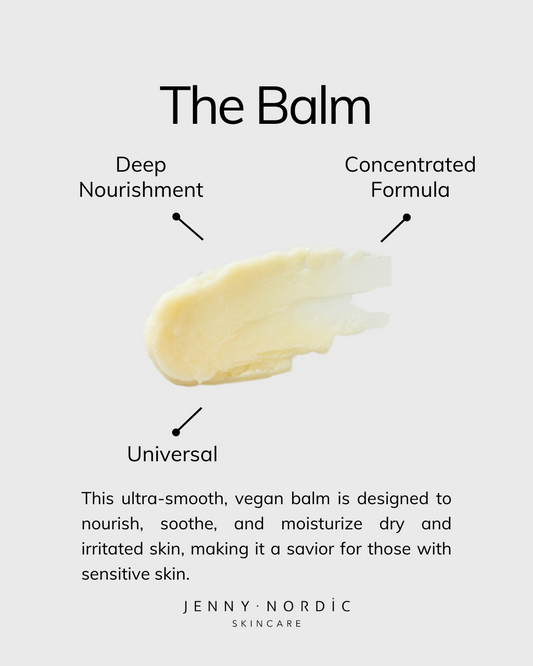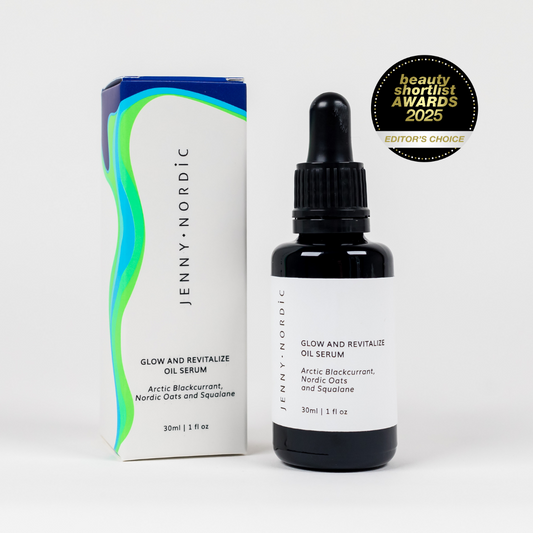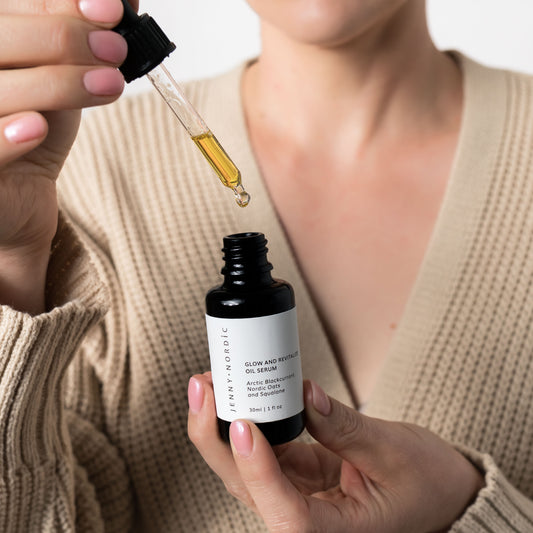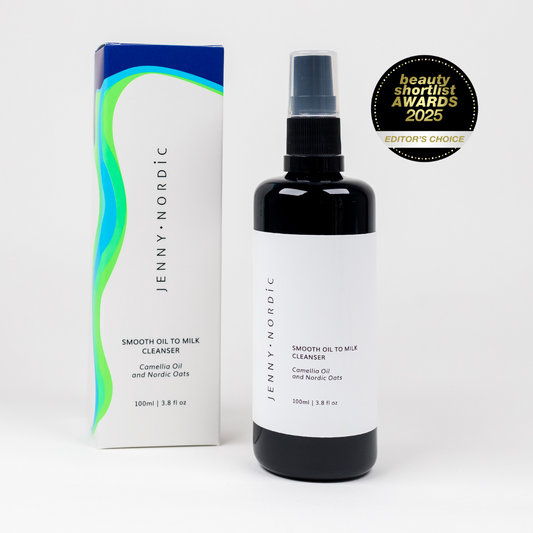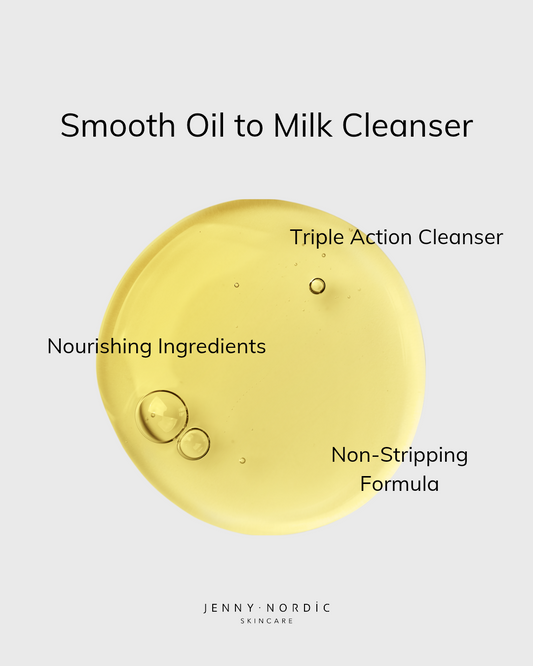
Hormonal Changes and Your Skin: How to Adapt Your Skincare Routine
Share
Hormones can feel like a rollercoaster at times, and just when you think you’ve got it all figured out, they shift gears, leaving your skin to deal with the aftermath. From around the age of 35 onwards, hormonal changes become more noticeable, and these fluctuations can impact your skin in various ways.
In this post, we'll look into how these hormonal changes affect your skin and share three easy steps to adapt your skincare routine accordingly.
For more information about hormonal health in your 40s and beyond, please check these specialist interviews about nutrition and exercise.

Hormonal Changes and How They Impact the Skin
As we age, our bodies undergo several hormonal shifts, primarily due to declining levels of oestrogen and progesterone. These changes can lead to:
-
Decreased Collagen Production: Collagen is essential for maintaining skin’s firmness and elasticity. Lower oestrogen levels mean reduced collagen production, leading to fine lines and wrinkles.
-
Thinner Skin: Reduced oestrogen can also cause the skin to become thinner and more fragile, making it more susceptible to damage and slower to heal.
-
Dryness and Sensitivity: Hormonal changes can impair the skin’s barrier function, leading to increased dryness and sensitivity. The skin may also become more prone to irritation and redness.
-
Adult Acne: Fluctuating hormone levels can stimulate sebaceous glands to produce more oil, potentially leading to clogged pores and breakouts.
-
Hyperpigmentation: Hormonal imbalances can trigger melanin production, resulting in dark spots and uneven skin tone.
3 Easy Steps to Adapt Your Skincare Routine
To combat these changes, it’s important to adjust your skincare routine. Here are three simple steps to help you navigate this transition and keep your skin looking its best.
Step 1: Nourish and Hydrate
As your skin becomes drier and more sensitive, it’s crucial to focus on hydration and nourishment. Here’s how:
-
Gentle Cleansing: Choose a mild, hydrating cleanser that won’t strip your skin of its natural oils. Look for an oil cleanser with ceramides, which help maintain moisture balance.
-
Moisturise Generously: Invest in a rich, nourishing face oil serum that contains ingredients like squalane, antioxidants and ceramides. These ingredients help to hydrate, strengthen the skin barrier, and support collagen production.
-
Hydrating Essences: Incorporate a hydrating essence into your routine. Rehydrate & Balance Beauty Essence is formulated with oat extract, niacinamide and lingonberry, providing intense hydration and plumping effects.
-
Facial Oils: If your skin is particularly dry, adding a facial oil can provide an extra layer of nourishment. Look for oils rich in essential fatty acids, like Camellia oil or rosehip oil, which help to restore the skin’s lipid barrier.
Step 2: Support Skin’s Structural Integrity
To counteract the effects of decreased collagen production and maintain skin firmness, consider the following:
-
Retinoids: Retinoids, including retinol, are vitamin A derivatives that boost collagen production and accelerate cell turnover. Retinoids can cause irritation, and are never of natural origin. They however can be vegan as they are man-made in the laboratory. Use retinoids at night, start slow and always apply sunscreen during the day, as they can increase photosensitivity.
-
Ceramides: Ceramides are the building blocks of the skin. Look for serums and moisturizers that contain ceramides to help firm and tighten the skin.
-
Antioxidants: Incorporate antioxidants like flavonoids, vitamin E, and niacinamide into your routine. Antioxidants protect the skin from free radical damage, support collagen production, and improve overall skin tone and texture.
-
Professional Treatments: Consider professional treatments like holistic face massage, gua sha, dermaplaining or even laser therapy, or radiofrequency treatments to stimulate collagen production and improve skin firmness. Always consult with a dermatologist to determine the best options for your skin type and concerns.
Step 3: Address Specific Concerns
Depending on your unique skin issues, you may need to incorporate targeted treatments into your routine:
-
Acne Management: If you’re dealing with adult acne, use products containing salicylic acid or benzoyl peroxide to keep breakouts under control. However, be cautious not to over-dry your skin. Balance acne treatments with hydrating and soothing products.
-
Hyperpigmentation: To tackle dark spots and uneven skin tone, use products with ingredients like vitamin C, niacinamide, and licorice extract. These ingredients help to brighten the skin and reduce pigmentation. Additionally, consider using a gentle exfoliating treatment containing alpha hydroxy acids (AHAs) or beta hydroxy acids (BHAs) to improve skin texture and tone.
-
Sun Protection: This cannot be stressed enough—wear sunscreen every day, regardless of the weather. UV exposure accelerates skin aging and exacerbates pigmentation issues. Choose a broad-spectrum sunscreen with an SPF of at least 30, and make it a non-negotiable step in your morning routine.
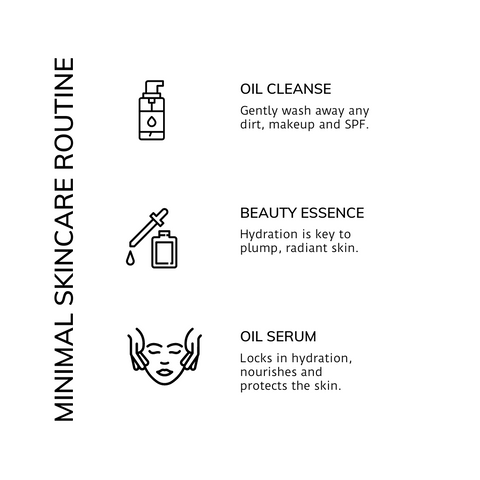
Adopting a Holistic Approach to Skincare
Beyond topical treatments, adopting a holistic approach to skincare can make a significant difference. Consider these lifestyle adjustments:
-
Balanced Diet: Eat a diet rich in antioxidants, vitamins, and minerals. Include plenty of fruits, vegetables, lean proteins, and healthy fats to support overall skin health. Omega-3 fatty acids, found in fish and flaxseed, can help reduce inflammation and improve skin hydration.
-
Stay Hydrated: Drink plenty of water throughout the day to keep your skin hydrated from the inside out. Herbal teas and water-rich foods like cucumber and watermelon can also contribute to your daily hydration needs.
-
Manage Stress: Chronic stress can wreak havoc on your skin, leading to breakouts and accelerated aging. Practice stress management techniques like meditation, yoga, or simply taking time for activities you enjoy. Join our Stress-Free Skin Challenge here.
-
Get Enough Sleep: Aim for 7-9 hours of quality sleep per night. Your skin repairs and regenerates itself while you sleep, so adequate rest is crucial for maintaining healthy, glowing skin.
-
Exercise Regularly: Regular physical activity boosts circulation, delivering oxygen and nutrients to your skin cells and promoting a healthy complexion.
Daily Check List To Reduce Stress
The Take-Away
Hormonal changes are an inevitable part of life, but with the right approach, we can manage their impact on your skin. By focusing on hydration and nourishment, supporting your skin’s structural integrity, and addressing specific concerns, you can adapt your skincare routine to meet your skin’s evolving needs. Remember, it’s all about finding what works best for you and embracing the journey with a positive mindset.
I hope these tips help you feel more confident and empowered in your skincare routine. If you have any questions or need personalized advice, don’t hesitate to reach out. Here’s to radiant, healthy skin at every age!
Love, Jenny - Founder of Jenny Nordic Skincare
PS. For daily skincare tips and inspiration, follow us on Instagram!


